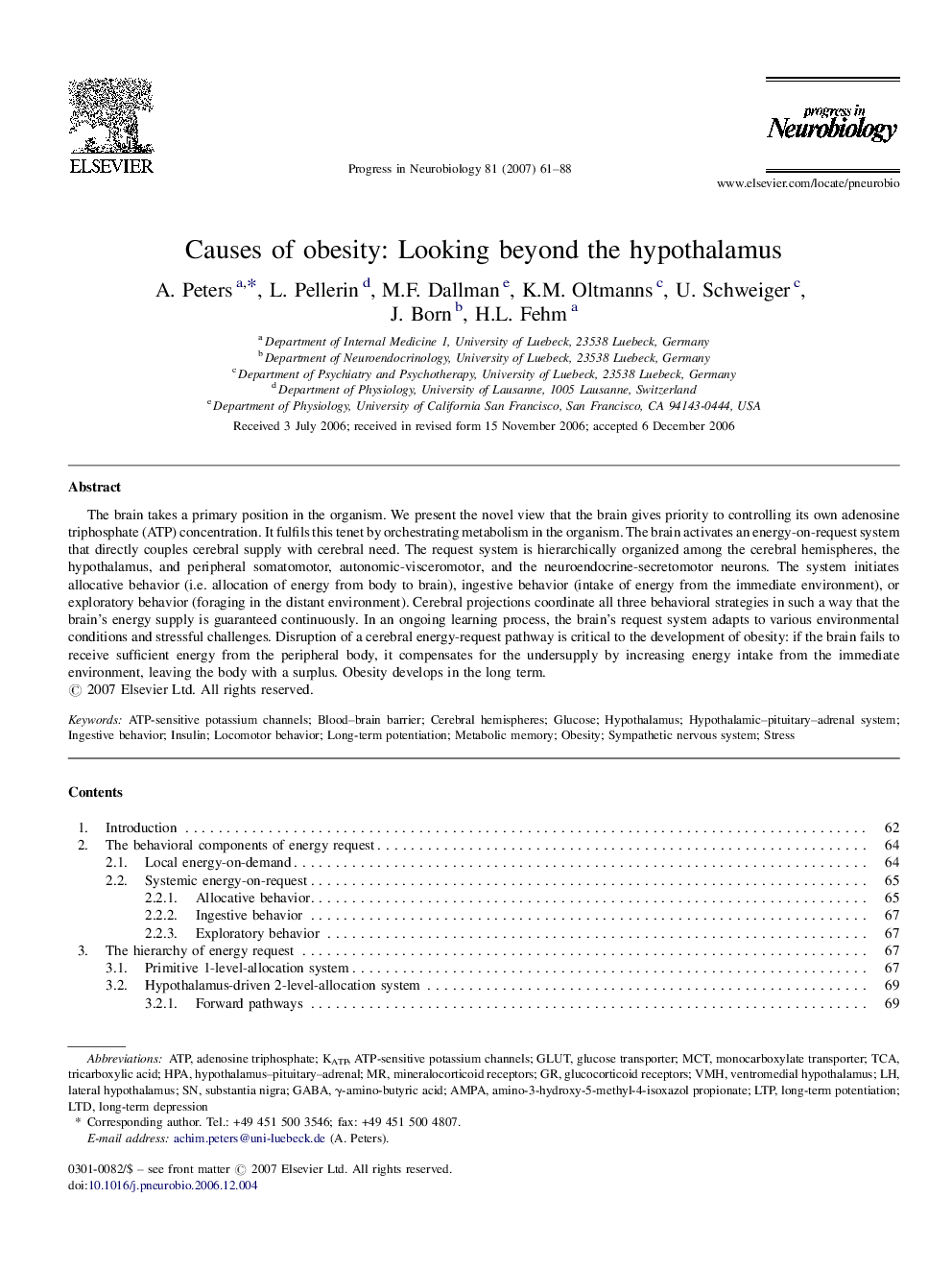| Article ID | Journal | Published Year | Pages | File Type |
|---|---|---|---|---|
| 4354013 | Progress in Neurobiology | 2007 | 28 Pages |
The brain takes a primary position in the organism. We present the novel view that the brain gives priority to controlling its own adenosine triphosphate (ATP) concentration. It fulfils this tenet by orchestrating metabolism in the organism. The brain activates an energy-on-request system that directly couples cerebral supply with cerebral need. The request system is hierarchically organized among the cerebral hemispheres, the hypothalamus, and peripheral somatomotor, autonomic-visceromotor, and the neuroendocrine-secretomotor neurons. The system initiates allocative behavior (i.e. allocation of energy from body to brain), ingestive behavior (intake of energy from the immediate environment), or exploratory behavior (foraging in the distant environment). Cerebral projections coordinate all three behavioral strategies in such a way that the brain's energy supply is guaranteed continuously. In an ongoing learning process, the brain's request system adapts to various environmental conditions and stressful challenges. Disruption of a cerebral energy-request pathway is critical to the development of obesity: if the brain fails to receive sufficient energy from the peripheral body, it compensates for the undersupply by increasing energy intake from the immediate environment, leaving the body with a surplus. Obesity develops in the long term.
